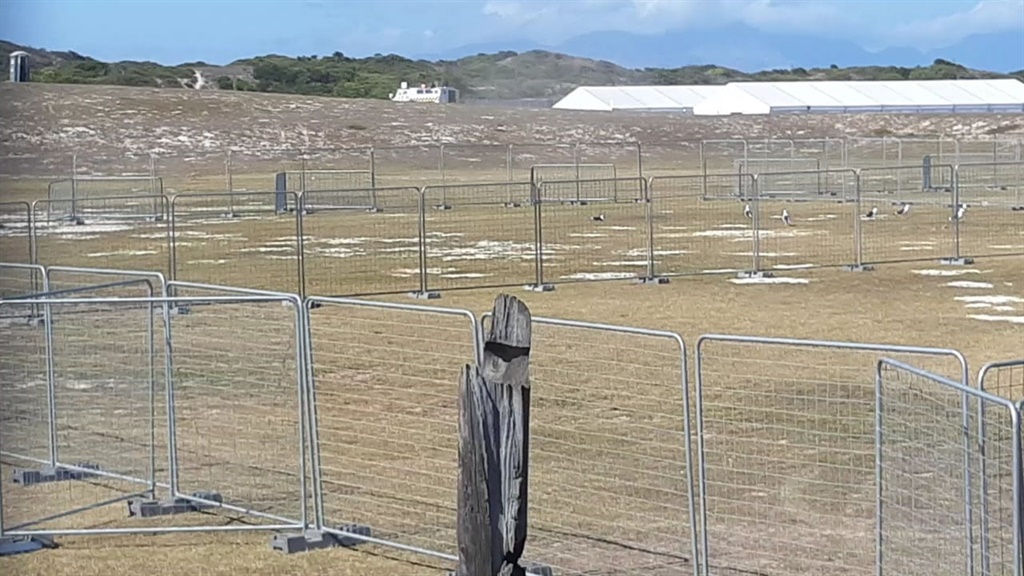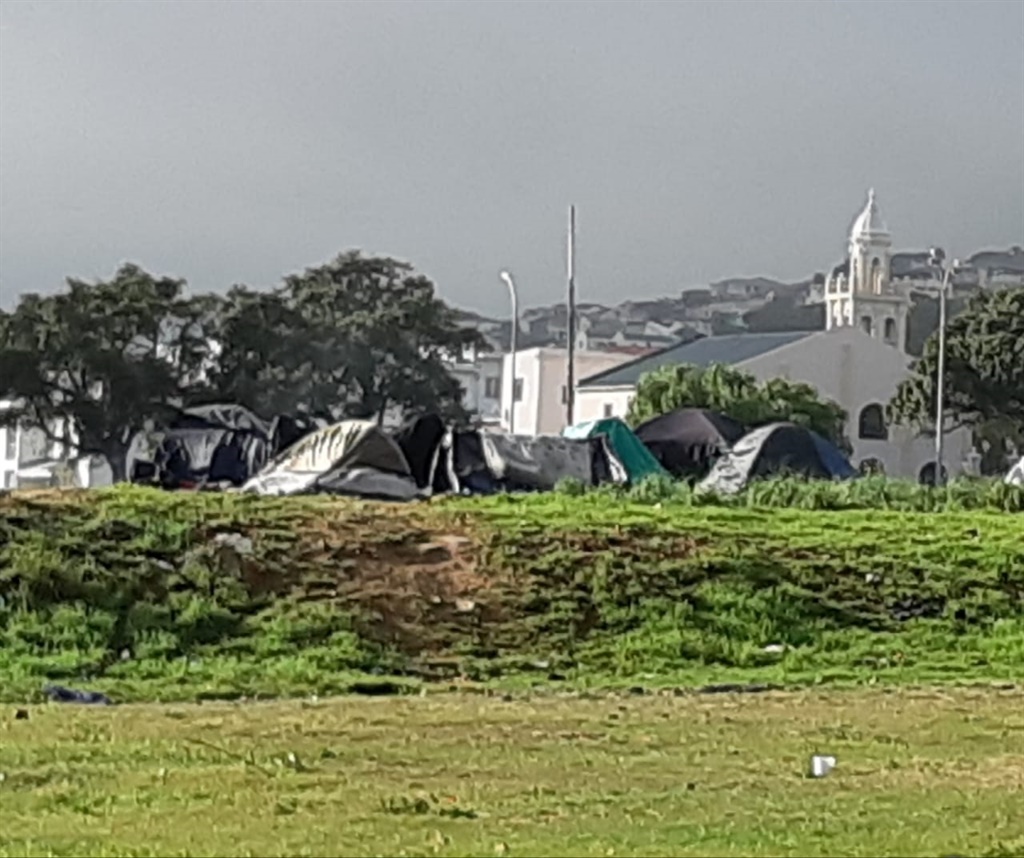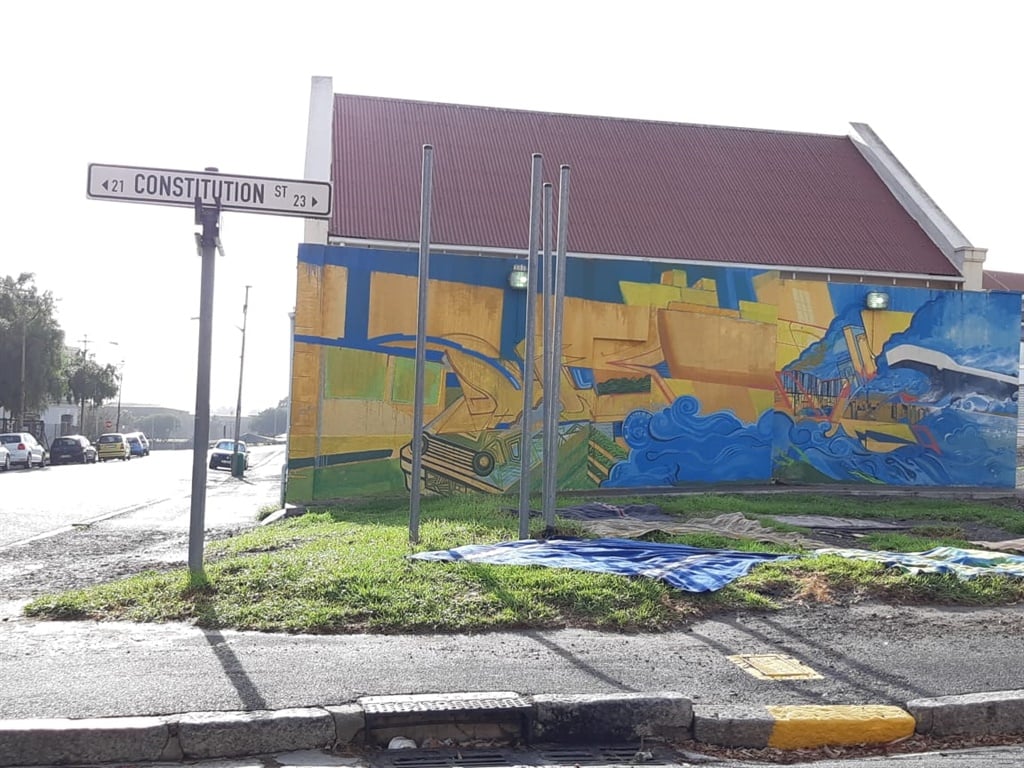The City of Cape Town said it can no longer force homeless people
to live in shelters now that the lockdown has eased from Level 5 to 4, denying
it is dumping people as it shuts down its Strandfontein camp.
This after the Muizenberg Improvement District (MID) said in a press release a
group of homeless people was simply dumped as the shelter in Strandfontein
works towards closure on 20 May.
According to the MID, there was a protest in the seaside town at 08:30 on Saturday
by homeless people who were living in the Muizenberg park near the police
station without food, water and ablution facilities.
It viewed the situation as the
authorities’ abdication of responsibility for their care during the Covid-19
crisis, and said it had not succeeded in being able to discuss the matter with
the City.
“These people were either
brought to the area or returned independently after the City decided to close
the controversial Strandfontein facility [on 20 May]. Around 40 people were
literally dumped in the park following Level 4 on 1 May,” the MID
contended.
“This is fast becoming a major health risk to the homeless and surrounding
community as too are the scores of desperate people begging on the streets and
thereby placing themselves and the broader community at risk of Covid-19
infection as they flout the lockdown regulations.”
The Strandfontein camp has been
controversial from the start, with critics saying residents were living too
close to each other, with no personal autonomy, that it was not safe, and that
opposition politicians were not allowed in for oversight.



A part of the Strandfontein shelter for the homeless. (Jenni Evans, News24)
Among those questioning the future of the site is ANC MPL Gladys
Baku Baku Vos who recently recovered from Covid-19.
She said simply letting people
go was like a “health time bomb” and residents should be placed in
alternate shelters.
In the meantime, groups of
homeless people have been seen around Cape Town’s pavements and parks again
since 1 May.
At least one case of Covid-19
was detected in an individual who moved from the Strandfontein site to a
smaller shelter, and an NGO was being assisted in managing the situation,
according to a City statement earlier this week.
Meanwhile, makeshift tents with
their guy ropes attached to trees for stability and tiny warrens of cardboard
houses have returned to the centre islands of dual carriageways, with blankets
being spread out to air again in fields as the sun rises.



Tent town on the fringes of Cape Town CBD. (Jenni Evans, News24)
The City said
people were moving out of Strandfontein of their own free will, and that had
already been discussed with the MID on 5 May.
“The
MID was informed that the homeless, who had made their way back to the park,
were the same individuals who opted to leave the Strandfontein temporary
emergency accommodation,” said the mayoral committee member for community
services and health, Zahid Badroodien.
“The City had indicated to these homeless individuals that we would assist
them into smaller shelters and that they should remain at the emergency
accommodation facility where they were able to access showers, three meals a
day, psychosocial programmes and daily medical services,” he added.
“Those who left the facility refused further assistance from the City and
this was clearly explained to the MID who have not appreciated this information
and are now using the homeless to score points in their community.”
In the meantime, 356 people have said they wanted to carry on living in a safe
space instead of returning to the streets.
The City
is working on extending existing shelters by creating additional bed spaces as
well as the long-term development of safe spaces across the city in identified
communities.
It said it had always been clear the accommodation in Strandfontein was
temporary, and it was not closing because of alleged human rights abuses as
claimed.
“They were informed that the facility was always of a temporary nature and
that the City would prepare smaller shelters and move the homeless community at
Strandfontein into those which we are now ready to do,” said
Badroodien.
“The MID is incorrect to allege that a safe space would have been erected
by the 20th as this deadline was for the closure of the Strandfontein facility
and not the implementation of a safe space, which is a longer-term solution.
“The City’s social development and early childhood development department is
working closely with shelters where spaces have been secured at the Haven Night
Shelter, Oasis Reach for Your Dream, Ubuntu Circle of Courage, TASP, Cape Flats
YMCA and the Happy Valley Shelter.”
Individuals who accepted further City assistance remains at the Strandfontein
temporary emergency accommodation and they will be moved to prefabricated
structures at existing shelters.
“Many persons who were housed at Strandfontein have opted to return to the
streets – some of them have already returned to their areas of origin. It is not
illegal to be homeless. The Level 4 lockdown regulations remove the authority
of the state to evacuate a homeless person from any place to a shelter as a
necessary precaution to preserve life.
“This
goes to say that if a homeless person chooses not to access a shelter, the City
cannot place an individual in a shelter without their consent.”
In the meantime, the City’s Homeless Agency Committee offers rehabilitation services,
upskilling programmes, reintegration and reunification with families as well as
short-term employment opportunities so they may engage in a sustainable way to
exit homelessness.



Airing blankets once back on the street in Cape Town. (Jenni Evans, News24)
Stay healthy and entertained during the national lockdown. Sign up for our Lockdown Living newsletter. Register and manage your newsletters in the new News24 app by clicking on the Profile tab

